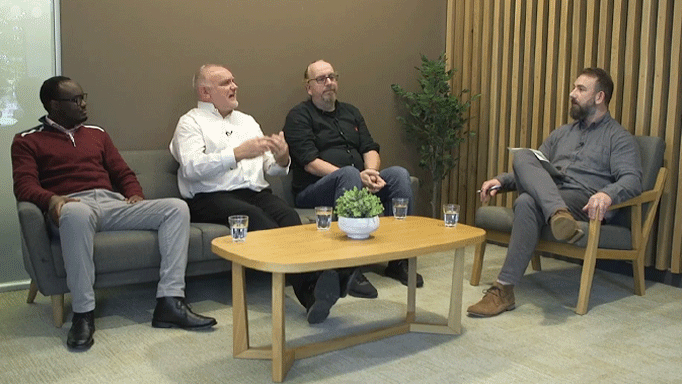Professor Richard Blanchard, Professor Ed Brown and Dr Jerome Nsengiyaremye are behind some of the biggest projects in Africa, and around the world, which aim to wean communities off traditional fuel and energy sources, such as wood and charcoal, and onto electric or other cleaner fuels.
The hour-long discussion, hosted by Peter Warzynski, covers a multitude of topics including, what is clean cooking, why is it becoming a priority, the role of energy resilience in the future, hydrogen energy and energy storage.
It mirrors a number of the goals and aims of the 2023 United Nations climate change conference – known as COP (Conference of the Parties), which begins on November 30, in Dubai.
Prof Brown will be at this year’s COP to launch the Global Electric Cooking Coalition (GeCCo), a new international initiative which aims to promote electric cooking as a scalable solution to the global clean cooking challenge.
It aims to make electric cooking a significant component of the cooking energy mix in at least 10 countries from Sub-Saharan Africa, Asia, and Latin America over the next seven years.
Topics and running order:
- 00:00 - 03:42 - Introductions to guests and overview of the discussion
- 03:43 - 09:31 - What is clean cooking?
- 09:32 - 11:50 - Is clean cooking becoming more of a priority?
- 11:51 - 19:25 - The rise of electricity availability and the development of the opportunities for clean electric cooking in countries
- 19:26 - 23:39 - Energy resilience and the role that has to play in the future
- 23:40 - 31:52 - COP28 and the Launch of GeCCo
- 31:53 - 40:03 - Energy provision, the world of Hydrogen energy and energy storage
- 40:04 -46:44 - Mini-grids and the benefits that have
- 46:45 - 52:34 - How do you get rural communities to open up to the idea of electric cooking?
- 52:35 - 57:24 – Electric cookbooks and how they came about
- 57:25 - 01:01:28 - Is this issue localised or a global issue?
- 01:01:29 - 01:10:14 - What are the alternatives available?
- 01:10:14 - 01:13:32 - Final remarks
Modern Energy Cooking Services (MECS), an eight-year research programme funded by UK Aid (FCDO), is laying the foundations for an accelerated transition towards affordable low-carbon alternatives, such as highly efficient electric cooking appliances.
In 2021 the University launched a new multi-million-pound research centre to help support vulnerable populations in the Global South shape and benefit from the transition to sustainable energy.
One of the core objectives of the Centre for Sustainable Transitions: Energy, Environment and Resilience (STEER) is to work with partners across the world, from decision-makers to energy-poor communities, to make the United Nations’ Sustainable Development Goal (SDG) 7 a reality.
In addition to its world-leading research in this area, Loughborough University also offers two cutting-edge master’s programmes on which students are able to learn the skills that STEER is using to shape global agendas and influence policy today: Climate Change Politics and Policy MA and Climate Change Science and Management MSc.
About COP28
The summit is an opportunity for all the world's nations to gather and discuss pressing environmental issues such as carbon emission, greenhouse gases and other topics.
It is also a chance for world leaders to negotiate practical ways to slow down climate change. In the past, it led to the landmark 2015 Paris Agreement to cut greenhouse gas emissions to an extent that will keep the atmosphere and wider environmental stable, safe and habitable.
The 28th COP meeting takes place in December, in the United Arab Emirates (UAE) – a controversial choice, mainly because this year’s COP President, Sultan Ahmed al Jaber, is also the Managing Director and group CEO of the Abu Dhabi National Oil Company (ADNOC).
